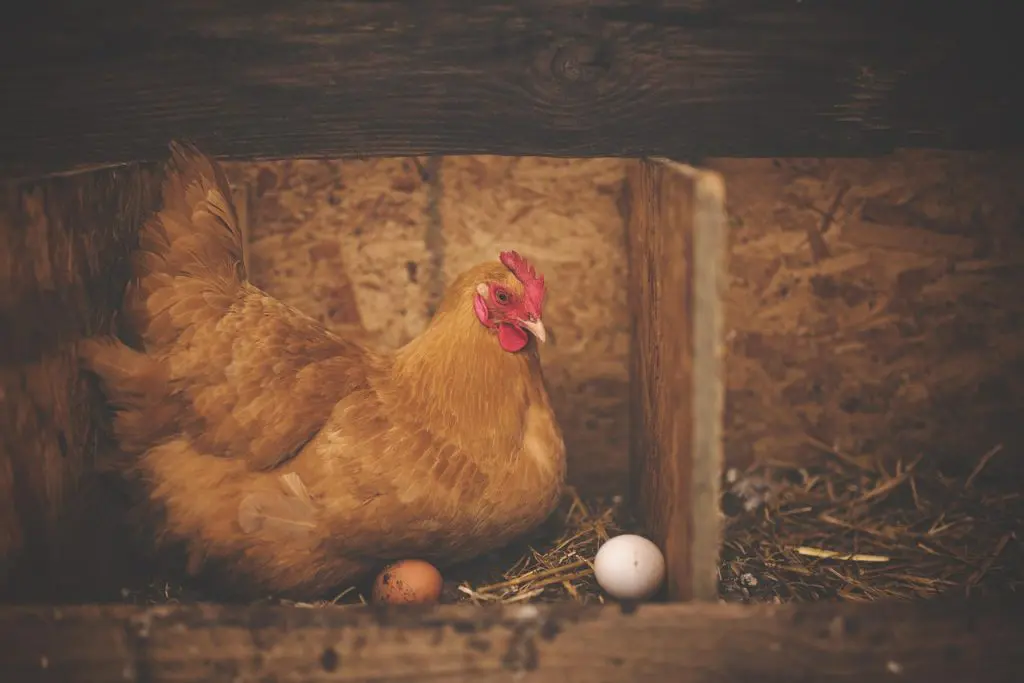
A Suspected Case of Avian Influenza Sparks Disease Control Measures Near Omagh Approximately 20,000 chickens are set to be culled at a farm near Omagh, County Tyrone, following a suspected case of avian influenza (bird flu). The Department of Agriculture, Environment and Rural Affairs (Daera) has implemented disease control measures around the site as testing […]
Approximately 20,000 chickens are set to be culled at a farm near Omagh, County Tyrone, following a suspected case of avian influenza (bird flu). The Department of Agriculture, Environment and Rural Affairs (Daera) has implemented disease control measures around the site as testing is underway to confirm the virus strain.
On Friday, Daera veterinary officials took samples from the farm after observing increased mortality in one poultry house. According to Daera veterinary officer Ignatius McKeown, deaths rose from three birds one day, to 20 the next, and then to over 300 birds following the sample collection.
Although only one of three poultry houses on the farm has shown signs of infection, all 20,000 birds will be culled as a precaution to limit potential spread.
“We’re now starting to enter the high-risk period for avian influenza, signalled by the movement of migratory birds,” McKeown said. He warned that this outbreak could have a “devastating effect on the owner and on the poultry industry.”
Agriculture, Environment and Rural Affairs Minister Andrew Muir described the situation as a “stark reminder that we cannot afford to be complacent.” He called on all poultry owners to be vigilant, especially during the high-risk autumn and winter periods.
Chief Veterinary Officer Brian Dooher stressed the importance of strict biosecurity protocols:
“The disease control measures are crucial to limit any potential spread of disease and I appeal to all bird owners – backyard and commercial – to take all necessary steps to protect your flock.”
Poultry farmers and bird keepers are being urged to:
Maintain high standards of hygiene and disinfection
Limit access to poultry houses
Prevent contact with wild birds
Monitor flocks closely for symptoms such as sudden deaths or respiratory distress
Report any suspected cases immediately to Daera
This is the first suspected outbreak in a commercial poultry setting in Northern Ireland since February 2025. Earlier that year, there were four confirmed outbreaks: three at commercial farms in Newmills, Pomeroy, and Cookstown, and one in a captive bird collection in Magherafelt. Before that, no commercial outbreaks had been confirmed since December 2021.
An Avian Influenza Protection Zone (AIPZ) was introduced across Northern Ireland in January 2025 after the H5N1 strain was found in wild birds in County Tyrone. These restrictions were lifted in June 2025.
The poultry industry is a vital part of Northern Ireland’s agricultural economy, estimated to be worth around £500 million annually. Any significant disruption, such as a mass cull or movement restrictions, can have serious consequences for producers and the wider supply chain.
The mass culling of birds, while necessary for disease control, raises environmental and ethical concerns. Disposal of tens of thousands of bird carcasses must be managed carefully to avoid soil and water contamination, especially if burial or incineration methods are used.
Improper disposal can lead to:
Nutrient leaching into nearby water systems
Emissions from large-scale incineration
Increased waste burden on local systems
In recent years, calls have grown for more sustainable disposal practices, such as rendering or biothermal composting under strict regulation. These approaches aim to minimize environmental damage while still ensuring biosecurity.
Given the mobility of both wild birds and agricultural products, avian influenza is inherently a cross-border issue. Coordination between Northern Ireland, the Republic of Ireland, and Great Britain is essential for effective surveillance and response.
Recent years have seen improvements in:
Data sharing on wild bird monitoring
Joint response protocols between agriculture departments
Alignment with EU disease control standards, despite post-Brexit divergence
The One Health framework, which recognizes the interconnectedness of human, animal, and environmental health, is increasingly being promoted by global health bodies as a guiding principle for managing zoonotic diseases like bird flu.
While lab tests are still pending to confirm the exact strain of avian flu, precautionary measures are being enforced to prevent further spread. This case highlights the continuing threat posed by avian influenza, especially during migratory seasons, and underscores the importance of early detection, rapid response, and strict biosecurity.
Farmers and bird owners are encouraged to stay informed and cooperate fully with government guidelines to protect animal health and the agricultural economy in Northern Ireland.
At All-Ireland Sustainability, we’re committed to building a greener, fairer island, together. Stay informed on the latest environmental initiatives, community action, and policy developments shaping sustainability across Ireland, North and South.
👉 Sign up for our newsletter today and be the first to hear about upcoming events, expert insights, and ways to get involved.
Whether you’re a seasoned advocate or just starting your journey, new members are always welcome.
Subscribe now and be part of the All-Ireland Sustainability Membership.